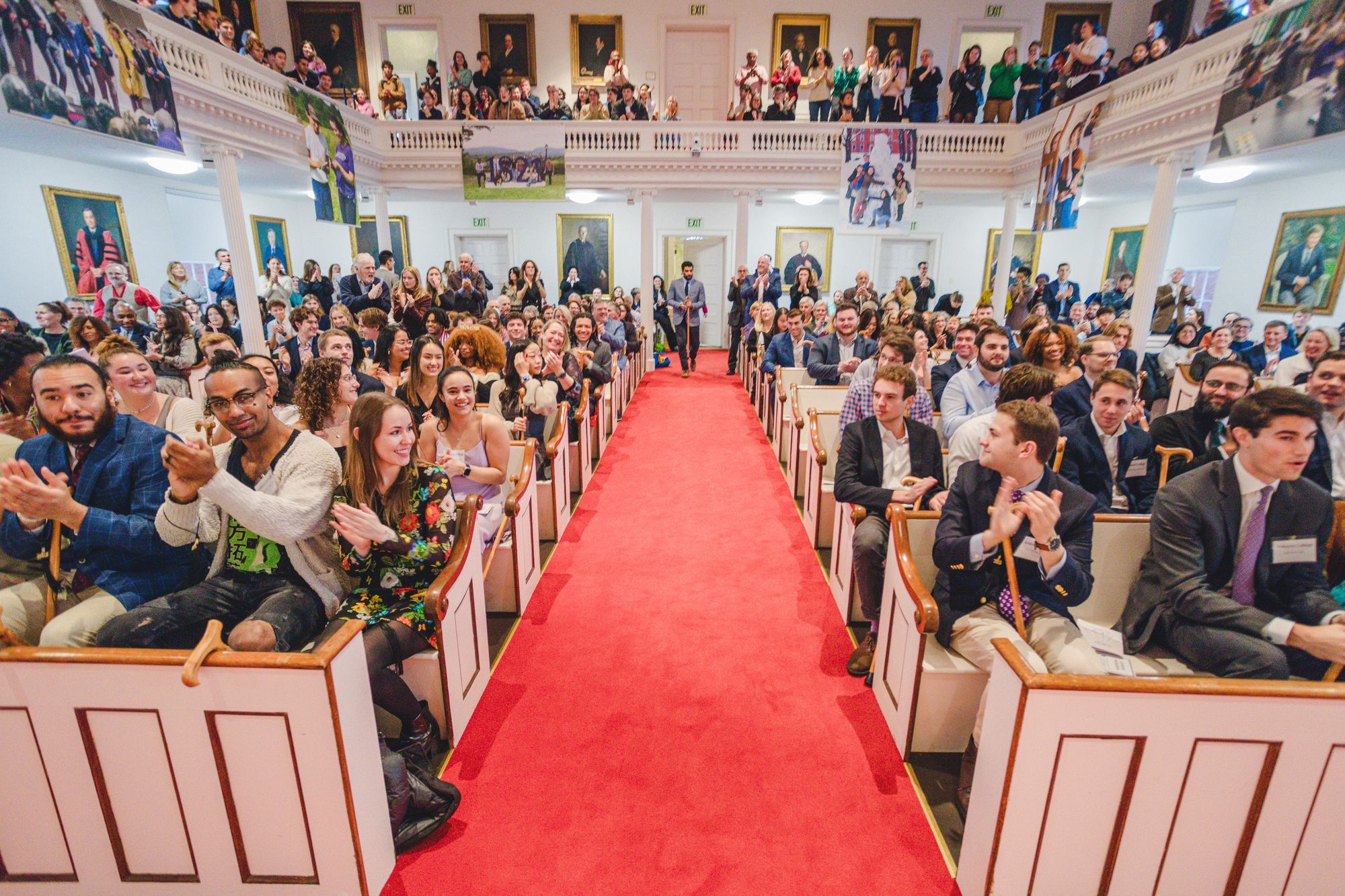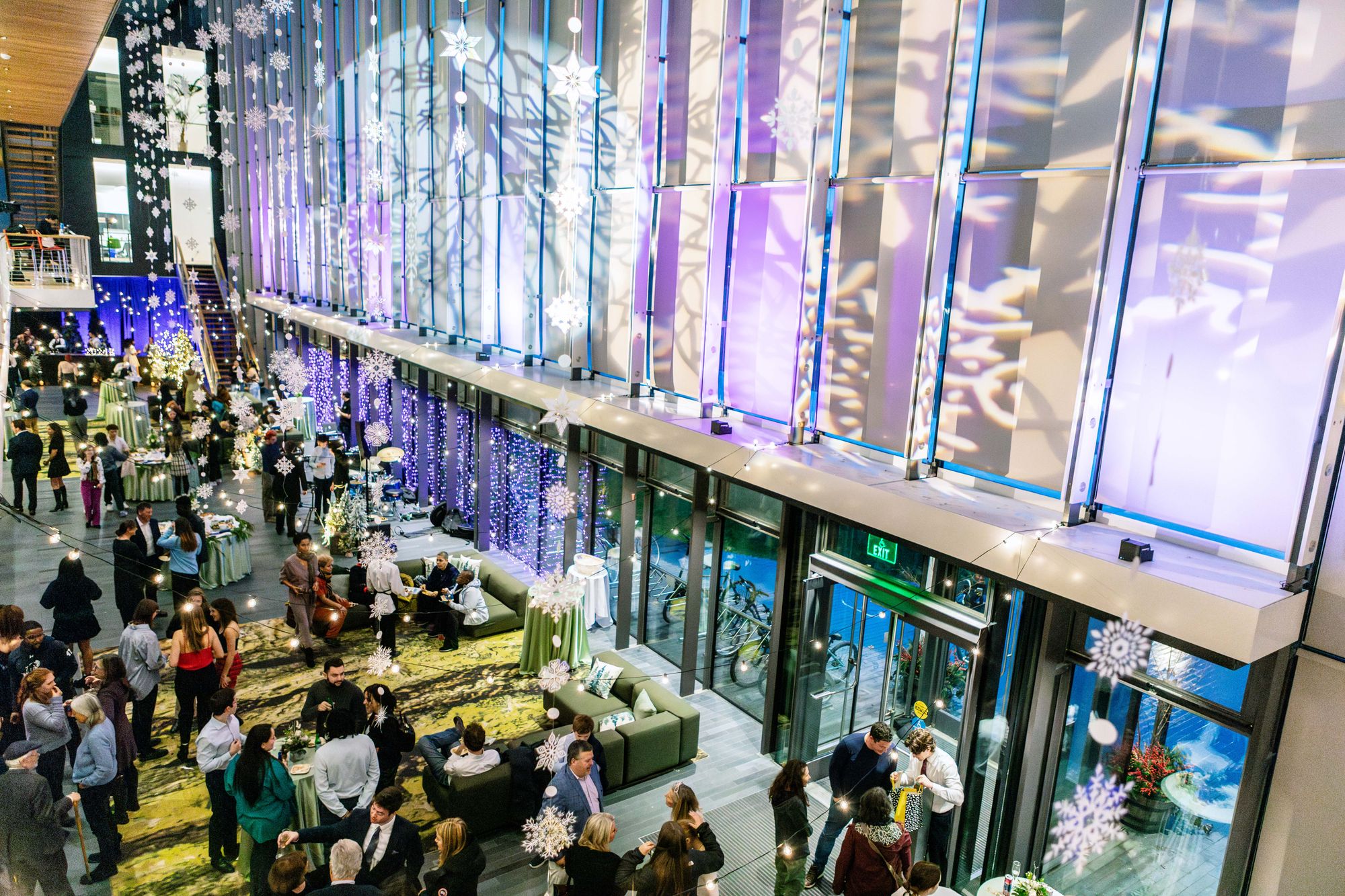Class of 2024E Reflects on Pandemic, Gap Semesters

The college celebrated the graduation of 70 seniors on Sunday, Dec. 3, members of the Class of 2024E. Most graduates began as freshmen in the fall of 2019, and their graduation marks the departure of the last major cohort of students who remember the college before the outbreak of Covid and the shock as the college became one of the first in the country to shut down.
While taking time off meant that members of the class did not have a completely normal Amherst experience, students explained that it still allowed for development and new experiences.
For some, this took the form of personal growth. Tylon Crump ’24E talked about his ACL injury that incapacitated him the football season before Covid hit.
“It really worked out in my favor where, without having to jump through any hoops or anything, I was able to get the most out of my career,” Crump said.
Many of his teammates who didn’t have injuries joined Crump in his postponed semester for the same reason.
“I feel like playing sports is like the last that you get of holding on to your childhood as a college athlete,” Crump said. “I think it’s like a big transition, kind of leaving that part of yourself behind, since you spent so much time doing it.”
For others, the semester off meant a smoother transition emotionally. Madeline Hahm ’24E said that being away from college allowed her to gather herself emotionally in a period of personal distress.
“I hadn’t had the best, easiest transition my freshman year,” she said. “I struggled a little bit getting adjusted to the East Coast, moving, not being around the same people I've been around my entire life.”
During the time off, Hahm worked in Washington, D.C., and lived alone in an apartment, which helped her regain the passion and confidence to continue her time at Amherst in a more driven state of mind.

For others, a semester off meant an opportunity to deepen their existing interests and confirm their commitment to their career goals. Harry Brussel ’24E has been working in local New York politics for the past seven years, and his semester allowed him to take a job with Westchester County Executive George Latimer.
“I worked as a mayoral campaign manager for New Rochelle for a year, which is exciting,” he said. “So I’m looking forward to continuing that work back home in government advocacy.”
Although the pandemic altered social interaction significantly, many had positive feelings looking back on their social lives through the pandemic.
“I don’t think Covid impaired any of my abilities to make friends,” Hahm said. “My best friend ended up coming from one of those groups that weren’t close anymore [because of Covid], and I’m so grateful for that friendship. This is going to sound cheesy, but life has a way … and if you’re looking, you’re going to find people, no matter what has happened in the world.”
While the pandemic split up some friend groups, others were more permanently bound together by their experiences.
Notably, Etta Gold ’24E and Kathleen Harris ’24E took a semester off with two other friends and rented a place in Montana together.
“[Our freshman group] was who we took a semester off with … during the intense bubble period of 2020. I do think that’s something I noticed,” they said. “[Because of Covid,] we have very intensely close relationships with a small amount of people.”
This starkly contrasts the more typical Amherst experience, Harris said, which consists of a big network of many connections that results from a small student body.
Students also expressed disappointment in the way social life has come back on campus.
“[Before Covid,] we had events, concerts … all the time … [campus] just felt thriving and vibrant,” Harris said.
“Amherst lost many school-wide community building activities,” Gold said. “There’s all these traditions like lip sync or Pindar dinner — all these things that Amherst used to do to build community that were insane because Amherst has so much money, and they were lost.”
She described how, before Covid, the college used to have themed catered dinners that large numbers of students were invited to at random. Without the Class of 2024E’s memory, some students worry that the campus may not recover these specific traditions.
On a more positive note, the Class of 2024E generally felt that time away from campus complemented their journeys in ways no classes could.
In addition to taking semesters off, Gold and Hahm each took an entire year abroad, an experience that was both relatively uncommon and deeply gratifying.
“Because I took the gap semester, I’m really excited to move on and see what I feel like I’ve already experienced … I feel like I understand what is going to come next a little bit better. And I feel much more prepared for it,” Hahm added. “I highly recommend taking a gap year to anybody who's considering it.”